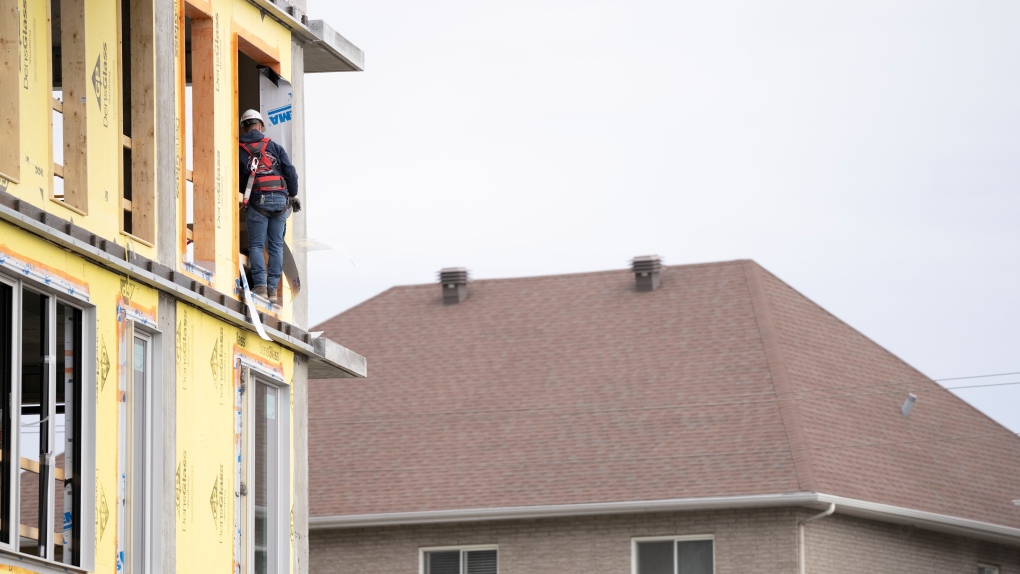What's behind Canada's housing crisis? Decades of policy failures, says former deputy PM
Canada’s housing crunch is the result of decades of poor policy stemming from the federal government leaving the issue to the provinces in the 1980s, according to one former deputy prime minister.
Former deputy prime minister Sheila Copps said in an interview with BNN Bloomberg(opens in a new tab) that when Canada Mortgage and Housing Corporation (CMHC) was involved in building housing, there was a significant amount of national investment in housing as well as housing policy and strategy.
“The decision that was made back in 1987 to get out of housing at the federal level has resulted in 30 years of underbuilt housing, and also 30 years of not really analyzing good public policy on housing,” Copps said. “I think that's a big issue.”
POLICY SHIFTS
According to Copps, who served as a Liberal deputy prime minister in the 1990s, housing policy in the 1970s saw the national government more directly involved in building housing, including the development of seniors and Indigenous housing.
This changed in the 1980s when provincial governments took over housing policy, Copps said.
While some provincial governments, like Quebec, decided to allocate funding to social housing, Copps said many others have not.
“When the provincial governments took over the money (intended for housing), a lot of them didn't actually spend it on housing,” she said.
From that period on, she said the federal government was not involved in housing until 2017 when the Liberal government led by Prime Minister Justin Trudeau decided to “insert itself back into the housing game.” Copps said this move marked the beginning of a collaboration that will take time to address the issues of shortage and affordability currently plaguing Canadian cities.
“Now five years later, we're looking at a problem that has been percolating since we signed off on housing back in 1987,” Copps said.
“Sometimes a national government needs to be at the table to fix problems and leaving it up to 10 provinces and three territories is not always the right way to go.”
ENCOURAGING MIGRATION
In addition to building homes to increase supply, Copps said the federal housing strategy should also entail ways to incentivize migration out of Canada’s most densely populated areas.
“The other thing we need to look at is what the housing prices are in rural and remote communities versus urban areas and how we can encourage people to move around. We learned during the pandemic that everybody doesn't have to live in downtown Toronto,” she said.
“There's lots of opportunities to make people think about migrating elsewhere and getting maybe extra points for a registered homeownership investment plan. These things should be built into the thinking and to have that you really need to have a national government that is not just looking at building housing.”

 www.ctvnews.ca
www.ctvnews.ca
Canada’s housing crunch is the result of decades of poor policy stemming from the federal government leaving the issue to the provinces in the 1980s, according to one former deputy prime minister.
Former deputy prime minister Sheila Copps said in an interview with BNN Bloomberg(opens in a new tab) that when Canada Mortgage and Housing Corporation (CMHC) was involved in building housing, there was a significant amount of national investment in housing as well as housing policy and strategy.
“The decision that was made back in 1987 to get out of housing at the federal level has resulted in 30 years of underbuilt housing, and also 30 years of not really analyzing good public policy on housing,” Copps said. “I think that's a big issue.”
POLICY SHIFTS
According to Copps, who served as a Liberal deputy prime minister in the 1990s, housing policy in the 1970s saw the national government more directly involved in building housing, including the development of seniors and Indigenous housing.
This changed in the 1980s when provincial governments took over housing policy, Copps said.
While some provincial governments, like Quebec, decided to allocate funding to social housing, Copps said many others have not.
“When the provincial governments took over the money (intended for housing), a lot of them didn't actually spend it on housing,” she said.
From that period on, she said the federal government was not involved in housing until 2017 when the Liberal government led by Prime Minister Justin Trudeau decided to “insert itself back into the housing game.” Copps said this move marked the beginning of a collaboration that will take time to address the issues of shortage and affordability currently plaguing Canadian cities.
“Now five years later, we're looking at a problem that has been percolating since we signed off on housing back in 1987,” Copps said.
“Sometimes a national government needs to be at the table to fix problems and leaving it up to 10 provinces and three territories is not always the right way to go.”
ENCOURAGING MIGRATION
In addition to building homes to increase supply, Copps said the federal housing strategy should also entail ways to incentivize migration out of Canada’s most densely populated areas.
“The other thing we need to look at is what the housing prices are in rural and remote communities versus urban areas and how we can encourage people to move around. We learned during the pandemic that everybody doesn't have to live in downtown Toronto,” she said.
“There's lots of opportunities to make people think about migrating elsewhere and getting maybe extra points for a registered homeownership investment plan. These things should be built into the thinking and to have that you really need to have a national government that is not just looking at building housing.”

What's behind Canada's housing crisis? Decades of policy failures, says former deputy PM
Canada's housing crunch is the result of decades of poor policy stemming from the federal government leaving the issue to the provinces in the 1980s, according to one former deputy prime minister.







